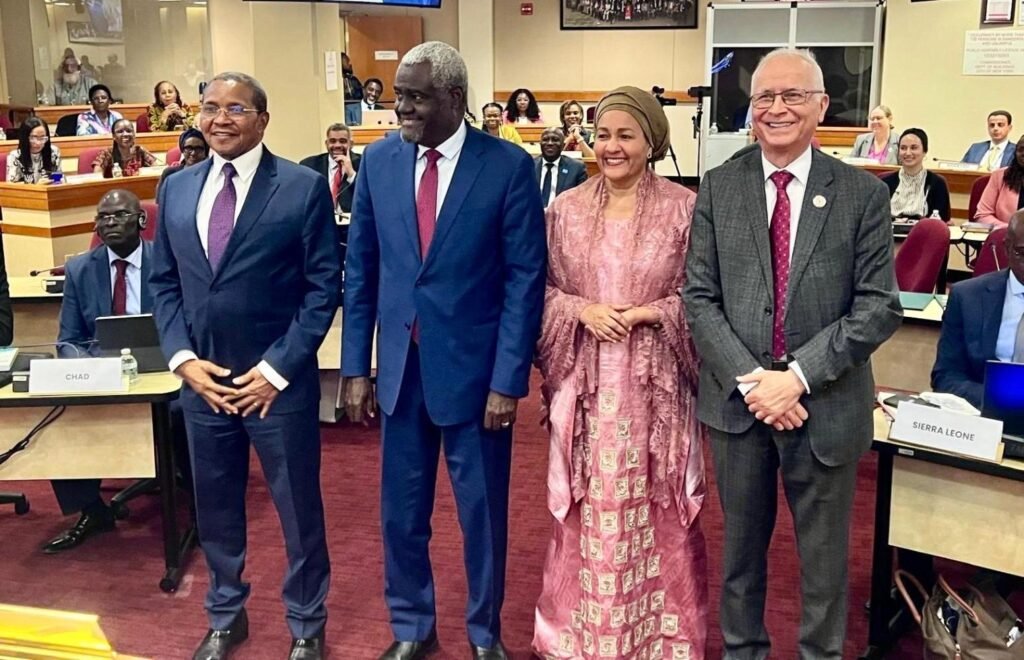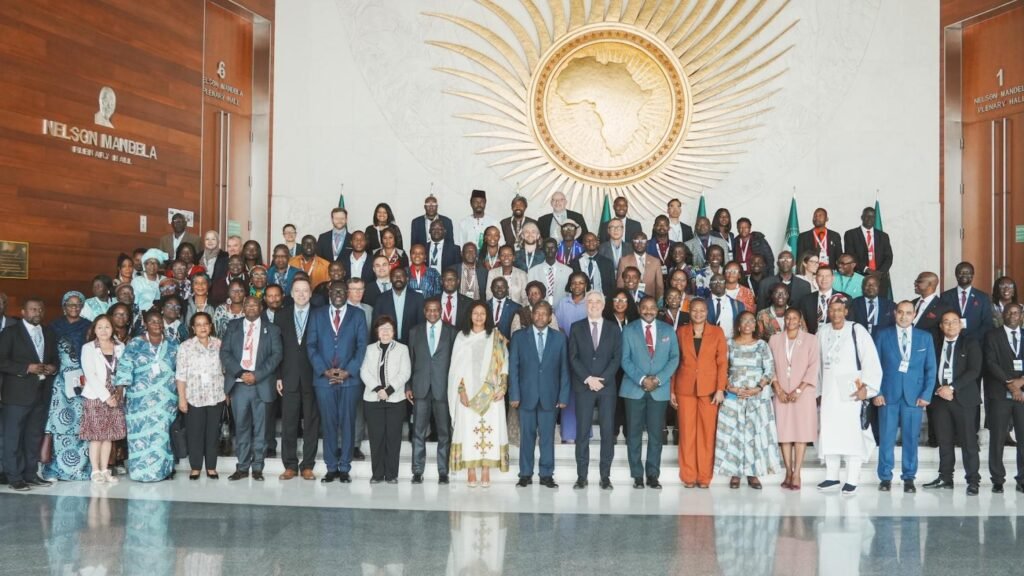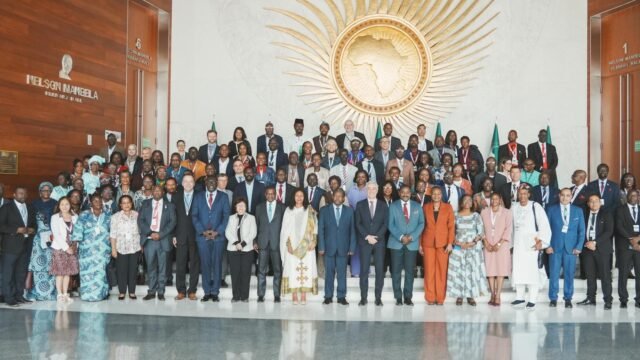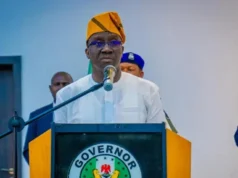In a historic step toward reshaping the continent’s education landscape, the African Union (AU) has launched a 10-year initiative aimed at transforming education and skills development across Africa. The plan—officially titled the AU Decade of Accelerated Action for the Transformation of Education and Skills Development (2025–2034)—was unveiled on 4 October 2025 at the Pan-African Conference on Teacher Education held in Addis Ababa, Ethiopia.
The launch marks a bold commitment by African leaders to improve access, quality, and relevance of education in alignment with Agenda 2063 and the United Nations Sustainable Development Goals (SDGs). The initiative comes at a time when many African countries are struggling with teacher shortages, outdated curricula, and uneven access to education—especially in rural and underserved communities.
According to Gaspard Banyankimbona, AU Commissioner for Education, Science, Technology and Innovation, education reform must begin with the people who deliver it—teachers. “A teacher’s quality and dignity define the quality of learning,” he said, stressing the need to restore respect, training, and adequate support for the teaching profession.

Table of Contents
Addressing the Teacher Shortage Crisis
One of the central challenges the AU aims to address is the critical shortage of qualified teachers. Across sub-Saharan Africa, millions of children are enrolled in overcrowded classrooms, and many are taught by underqualified or untrained educators. The AU’s new 10-year framework acknowledges that without empowered and well-trained teachers, no education reform can succeed.
Ethiopia’s State Minister of Education, Ayelech Eshete, highlighted the urgency of the situation during the conference. She revealed that, if current trends continue, only nine countries in sub-Saharan Africa will have enough qualified primary school teachers by 2030. She added that “teacher motivation, fair remuneration, and continuous professional development” must become top priorities for all member states.
To tackle this, the AU initiative is built around six strategic frameworks, each addressing key dimensions of education reform:
- Teacher training and professional growth – improving recruitment, certification, and continuous development.
- Digital education and innovation – integrating technology into teaching and learning.
- Gender equality and inclusion – ensuring equal opportunities for all learners.
- Curriculum reform – aligning education with 21st-century skills and labour market needs.
- Sustainable financing – mobilising resources and investments for long-term impact.
- Policy harmonisation and accountability – strengthening data systems and governance structures.
Together, these frameworks aim to create a more inclusive and resilient education system across Africa—one that prepares young people not just for exams, but for meaningful participation in modern economies.
Shared Responsibility and Continental Collaboration
The AU Decade of Action calls for collaborative responsibility across the continent. Governments, private institutions, civil society, and development partners are all being urged to contribute to the vision of a knowledge-driven Africa.
Education experts at the Addis Ababa conference emphasised that technology will play a transformative role. As mobile learning and digital platforms become more accessible, they could help bridge the gap between urban and rural education. For instance, open educational resources and teacher exchange programmes are being proposed as practical ways to expand learning opportunities.
Banyankimbona reiterated that inclusivity is central to the AU’s approach. “No learner should be left behind because of geography or gender. Education must reach everyone—urban or rural, rich or poor,” he said.
The AU also stressed that this decade-long programme is not a symbolic declaration but a results-driven plan. Member states will be expected to measure progress through data and share best practices. The AU will coordinate regular progress reviews to ensure that efforts remain aligned and effective.

What It Means for Nigeria and the Road Ahead
For Nigeria, Africa’s most populous nation, the AU’s education decade presents both an opportunity and a test of resolve. With over 20 million out-of-school children and a persistent teacher shortage, Nigeria’s participation could be a turning point if backed by strong political will and sustainable funding.
Experts say Nigeria must align its education policies with the AU’s frameworks by:
- Expanding teacher training and certification programmes.
- Investing in digital learning and infrastructure.
- Promoting inclusive education in rural and northern regions.
- Updating curricula to focus on innovation, critical thinking, and employability.
- Enhancing monitoring and accountability mechanisms.
Education consultant Dr. Ifeoma Ajayi noted that the initiative offers Nigeria a rare chance to learn from regional peers. “This is not just about funding; it’s about rethinking education from the ground up,” she said. “Nigeria can use this decade to modernise its teaching force, expand digital access, and build an education system that truly serves its people.”
The AU’s 10-year plan could also strengthen continental cooperation, enabling shared teacher training, resource exchanges, and harmonised qualification standards. This means a Nigerian teacher could one day move seamlessly to teach in Ghana or Kenya under unified continental certification standards.
As the initiative takes off, the challenge will be to maintain momentum and accountability. While political pledges are encouraging, education reform demands consistent effort—especially in financing and implementation.
For Nigeria and other member states, the next decade offers a historic opportunity to close the education gap and empower a new generation of African learners.

Looking Forward: Education as the Heart of Africa’s Future
The AU’s 10-year initiative to improve education in Africa is more than a policy—it’s a declaration of intent to unlock the continent’s greatest resource: its people. By investing in teachers, modernising learning systems, and prioritising inclusion, Africa is positioning itself for a future built on knowledge, innovation, and human capital.
If implemented effectively, this initiative could redefine the story of African education—from one of inequality and underfunding to one of empowerment and excellence. The true success of the decade will not be measured in speeches, but in classrooms—where every teacher is valued, every child is learning, and every nation is moving closer to a shared vision of progress.
Join Our Social Media Channels:
WhatsApp: NaijaEyes
Facebook: NaijaEyes
Twitter: NaijaEyes
Instagram: NaijaEyes
TikTok: NaijaEyes
READ THE LATEST EDUCATION NEWS





